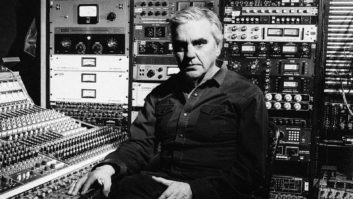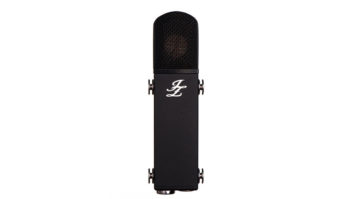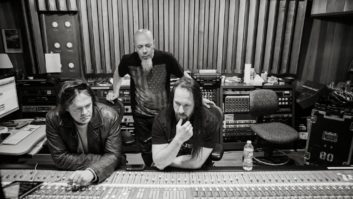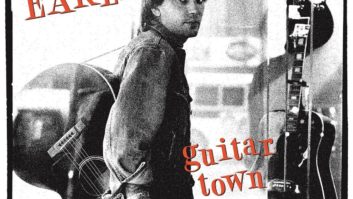
“Some microphones sound fantastic on one singer and don’t sound fantastic on a similar singer,” says recording, mixing and mastering engineer and producer Ronan Chris Murphy. “That’s just because of a particular resonance in the voice of one singer compared to the other.”
Murphy can generally predict which microphones will work on a singer after hearing them sing or listening to previous recordings. He’s worked with a wide range of artists, including Gwar, King Crimson, Terry Bozzio, Steve Morse, Pete Teo and Jamie Walters, as well as on video games titles such as Assassin’s Creed: Brotherhood and Mafia III, so he has experience across multiple music genres. Even so, he says, “There are times where, because of various factors, predictions can be wrong.”
To zero in on the best choice from among the available alternatives, Murphy, who is also founder of Recording Boot Camp, a recording education business, will have the vocalist try as many as six microphones. “I always try my best to set up double-blind tests,” he says, because the eyes can deceive the ears. “You’re absolutely going to think the fancy Neumann sounds better—but in reality, that’s not always the case.”
How To Choose Your Next Studio Microphone – The Complete Guide
None of the mics would be optimally positioned in an array of six, so Murphy tests two at a time through a matched pair of mic preamps. Eliminate one mic, replace it with the next choice, set up the double-blind again and continue the process. “You can get though six mics in under half an hour,” he says. “Especially if you’ve got somebody to help you.”
However, the quality and performance of a particular microphone is only part of the equation. There are two more important things to also keep in mind, he says: First, does the sound of the microphone suit the record that is being made? And, equally and perhaps even more importantly, he says, “Will this particular microphone get a better performance out of the singer?”

There are two sides to the performance issue, too. A singer may have spent the last several years handholding a dynamic mic playing live with a band before they cut their first record. “Now you’re going to try and capture on record that amazing thing they do. A lot of times, you put somebody in front of the big, shiny mic with headphones on and they’re out of their comfort zone,” says Murphy.
Conversely, a high-end mic can elevate a singer’s performance. He recalls a project where the shootout ended in a dead heat between a vintage Neumann he had rented and a Shure condenser. The singer had talked excitedly all week about using the Neumann. “So we spent a little extra money so that he could step up in front of that big, shiny microphone like he’d seen his idols do. It was worth it to get a better performance out of the artist.”
Check the microphones throughout the singer’s dynamic range, he also urges. Worse case, he says, “If I find somebody is great on one mic in the choruses and great on another in the verses, I’ll put up two mics, track both, then cut between the two in the mix.”
Even Murphy has been surprised by the results of shootouts, and advises checking any preconceptions at the door. “People are surprised that moving coil dynamics can beat out large diaphragm condensers or that an inexpensive condenser might beat out a more expensive one. There are times when a $100 microphone can sound significantly better than a $10,000 microphone. The great thing about double-blind testing is that it removes all that bias.”
Ronan Chris Murphy • https://ronanchrismurphy.com/







